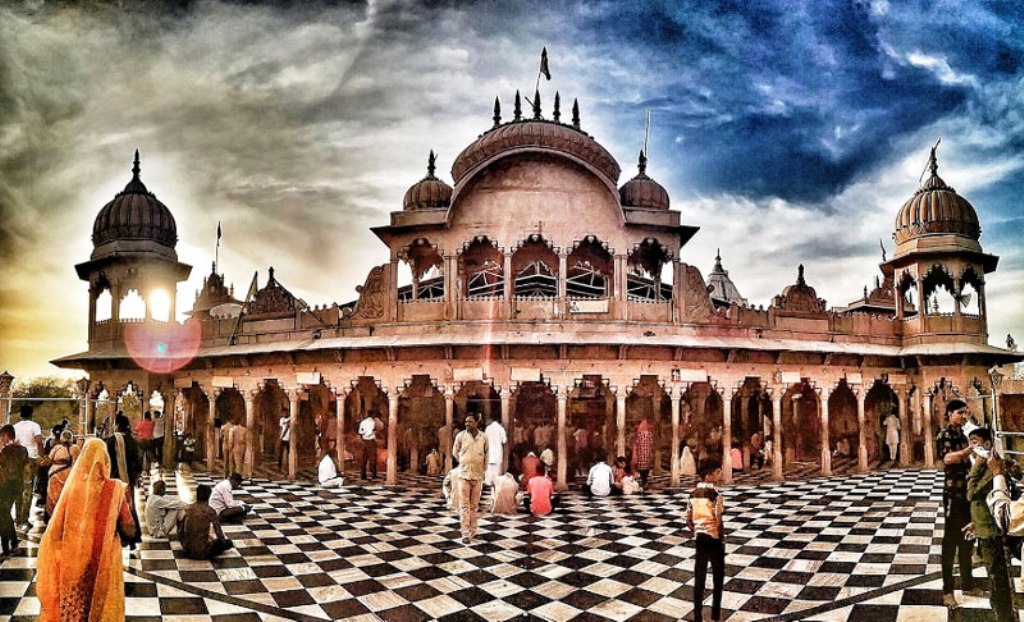India, a land of diverse cultures and traditions, is home to countless religious sites that hold immense significance. Among these, the Barsana Shri Radha Rani Temple stands as a symbol of devotion and spiritual heritage. In this article, we will take you on a journey through the divine beauty of Barsana Shri Radha Rani Temple and explore tour packages that allow you to immerse yourself in this sacred experience.

Read more.. Your Dream Honeymoon: Essential Tips and Ideas
Read more:- Romantic Escapes: Unique Honeymoon Tips for Couples
Unveiling the Gem
1. The Sacred Barsana Shri Radha Rani Temple
Purpose: Discover the history and spiritual importance of Barsana Shri Radha Rani Temple.
Eligibility: Everyone is welcome to visit the temple.
Details: Delve into the legends, myths, and architectural wonders of this divine abode.

Also read – What is Goram Ghat Famous For?
2. The Essence of Barsana
Purpose: Understand the significance of Barsana in the Hindu faith.
Eligibility: Barsana is open to pilgrims and tourists from all walks of life.
Details: Explore the picturesque town of Barsana and its connection to the temple.
Embracing Spirituality
3. Spiritual Serenity
Purpose: Experience the tranquility and spirituality of Barsana Shri Radha Rani Temple.
Eligibility: All individuals seeking spiritual solace are welcome.
Details: Learn about the rituals, prayer services, and cultural festivals that grace the temple.
4. Legends of Radha Rani
Purpose: Dive into the legends and stories surrounding Radha Rani.
Eligibility: Open to anyone interested in Indian mythology.
Details: Discover the eternal love story of Lord Krishna and Radha and its connection to Barsana.
Planning Your Visit
5. Tour Packages
Purpose: Explore tour packages to Barsana Shri Radha Rani Temple.
Eligibility: Anyone interested in visiting the temple can explore these packages.
Details: Uncover various tour packages that cater to different preferences and budgets.
6. Accommodations
Purpose: Learn about the accommodation options near Barsana Shri Radha Rani Temple.
Eligibility: Open to all tourists and pilgrims.
Details: Discover comfortable lodging options for a peaceful stay.
The Journey
7. Preparing for the Trip
Purpose: Gain insights on how to prepare for your journey to Barsana.
Eligibility: All travelers planning to visit the temple.
Details: Learn about necessary travel documents, clothing, and other essentials.
8. The Pilgrimage
Purpose: Experience the journey to Barsana Shri Radha Rani Temple.
Eligibility: Open to pilgrims and tourists alike.
Details: Follow the path of spiritual seekers as they embark on a pilgrimage to the temple.
Conclusion
In conclusion, Barsana Shri Radha Rani Temple stands as a testament to the rich spiritual heritage of India. This divine abode welcomes all, offering a unique opportunity to explore the legends of Radha Rani, partake in spiritual rituals, and experience the tranquility of Barsana. With various tour packages and accommodations available, your journey to this sacred temple promises to be a memorable and enriching experience.
1. Is Barsana Shri Radha Rani Temple only for Hindus?
No, Barsana Shri Radha Rani Temple is open to people of all faiths and welcomes visitors from around the world.
2. What are the best times to visit Barsana Shri Radha Rani Temple?
The temple is particularly vibrant during festivals like Holi and Janmashtami. However, it can be visited year-round for a serene and spiritual experience.
3. Can you explore Barsana and its surroundings as part of the tour packages?
Many tour packages include visits to the town of Barsana and its surrounding attractions, allowing you to experience the local culture and beauty.
4. Is photography allowed within the temple premises?
Photography policies may vary, but generally, photography is permitted in most areas of the temple. However, it’s essential to respect any restrictions or guidelines provided by the temple authorities.


0 Comment